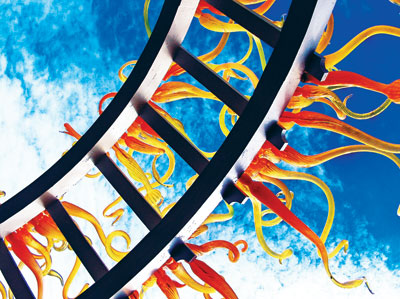All Nonfiction
- Bullying
- Books
- Academic
- Author Interviews
- Celebrity interviews
- College Articles
- College Essays
- Educator of the Year
- Heroes
- Interviews
- Memoir
- Personal Experience
- Sports
- Travel & Culture
All Opinions
- Bullying
- Current Events / Politics
- Discrimination
- Drugs / Alcohol / Smoking
- Entertainment / Celebrities
- Environment
- Love / Relationships
- Movies / Music / TV
- Pop Culture / Trends
- School / College
- Social Issues / Civics
- Spirituality / Religion
- Sports / Hobbies
All Hot Topics
- Bullying
- Community Service
- Environment
- Health
- Letters to the Editor
- Pride & Prejudice
- What Matters
- Back
Summer Guide
- Program Links
- Program Reviews
- Back
College Guide
- College Links
- College Reviews
- College Essays
- College Articles
- Back
What is Literature?
Last year, I had the displeasure of reading Mary-Anne Scott's Snakes and Ladders. I say that this was a displeasure because it was quite simply one of the worst books I've ever read. The plot was inconsistent, the characters and their motives questionable, and the resolution baffling.
This is only a significant event (I read plenty of terrible books) because it was a finalist in the NZ Post Book Awards under the 'Teen Fiction' section, meaning it was shortlisted. This implies one of two things: either there were only five teen fiction books written in New Zealand last year, and so Snakes and Ladders had to be included, or there were more than five, but Snakes and Ladders made it onto the list because the rest were somehow worse than it. Whichever it is, I weep.
The question is, does being shortlisted for a prestigious award make Snakes and Ladders a piece of literature? I don't think so. The book could only be considered literature if that broad umbrella covers 'what not to do when writing a book'.
So what is literature? It was so kindly defined to me recently as 'written work, especially that of lasting artistic merit', but I'm not so sure.
For example, Gaius Valerius Catullus was a Roman poet known for his short, witty pieces ranging over a variety of subjects, and his works are considered classics. They very much qualify as time-worn. However, from his Carmen, this line stands out to me: "pedicabo ego vos et irrumabo", which I've neglected to translate, because quite frankly it's too obscene for one to include in a piece of writing that'll end up on a teacher's desk. Though the insults themselves are perhaps artistic, it's hard to tell when words like that are being bandied about.
A lot of Catullus's poems are crass at best and obscene at worst. One would imagine that most self-respecting linguistic scholars would be appalled to include such poems in their repertoire. But include it they do. Because it's old. And it's not the only one; two thousand year old pornography isn't uncommon, and scholars just love to study it. Funny that.
Personally, I'm cynical. If I'm looking for literature and I see that, I won't be convinced.
So age in itself cannot be a criterion for bequeathing the title of 'literature' upon a piece of work, and nor can awards.
But I'm getting away from the point, just slightly. Written work, lasting artistic merit. We've ruled out 'lasting' and 'merit'.
So does literature have to be a written work?
I doubt that too. I've seen some fantastic movies that far outstrip books, such as O Brother Where Art Thou and Inside Llewyn Davis (both of which are directed by the Coen Brothers, which I don't think is a coincidence) which really are artworks, and they're texts too; NCEA has encouraged in me the idea that 'visual texts' are a thing. The NBC show Hannibal is also cleverly written and beautifully filmed, and it'll be one of the classics one day. It's better than the books it's based on (at least in my humble opinion) and they're considered to be literature, so by extension, Hannibal should be too.
Yet another part of the definition of literature is debunked.
Finally, we reach artistry. What defines artistic merit in a book? Is it an overly metaphor-laden first kiss in a romance novel? Is it the bizarre stream of consciousness the narrator gives as they set off on an adventure? Could it perhaps be the oddly delivered metaphysical sermon delivered by the author just after the denouement of the tale? Dear gods, I hope not. It seems like artistic merit is the combination of cleverly used language features, elegant description and correct, well-paced sentencing. Does every scholar want this exact same combination of parts of a whole in every book they read, and in the same ratio?
Do the scholars of the world have a gigantic hive mind that allows them to all have the same opinion on something?
The true Secret Life of Bees. They're running our universities.
Assuming that this hive mind actually doesn't exist, then English literature experts probably have different opinions on the quality of nearly every book classically considered literature, and for every lover, it's not unlikely there's another poindexter who says no.
If they can't agree on it, then odds are the average plebeian won't be able to either.
It seems to me, when all is said and done, that whether or not a piece of work qualifies as literature is very much in the eye of the beholder.

Similar Articles
JOIN THE DISCUSSION
This article has 0 comments.

A piece of writing prompted by our in-class discussion of the nature of literature, a subject I found surprisingly compelling.